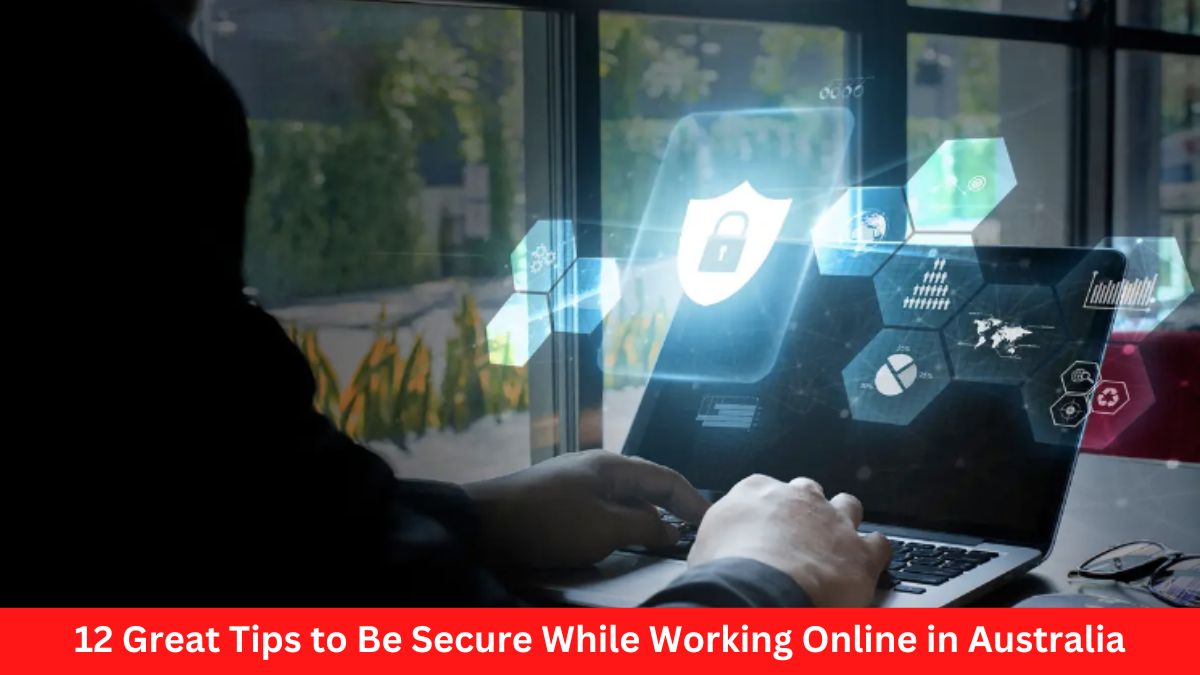As technology continues to evolve, most of us spend a significant amount of time online. However, this convenience also brings potential cyber threats. The rate of cybercrime in Australia has increased in recent years, highlighting the importance of securing our online work.
While working online we can apply simple steps like use a reliable VPN like ExpressVPN to secure our data and use strong passwords etc., this blog will help you explore 12 essential tips to help you stay secure while working online in Australia.
12 useful tips to be secure while working online in Australia
Use a reliable VPN
Using a reliable VPN is a great way to secure your online work in Australia. A VPN (Virtual Private Network) encrypts your internet connection and hides your IP address, making it difficult for anyone to track your online activities.
Some VPN providers may keep logs of your internet activity, while others may have weak encryption or leak your IP address. That’s why it’s important to do your research and choose a reliable and reputable VPN provider.
Some factors to consider when choosing a VPN include the level of encryption, the number and location of servers, the logging policy, and the ease of use. Look for VPNs that have been independently audited for security and privacy, and that have a strong reputation in the industry.
Keep your software updated
Keeping your software updated is important to ensure you have the latest security patches. This applies to all your software, including your operating system, web browser, and any applications you use.
To keep your software updated, it’s important to regularly check for updates and install them as soon as they become available. Many devices and applications have an automatic update feature that can be enabled, ensuring that updates are downloaded and installed without you having to check manually.
It’s also important to download updates from trusted sources, such as the official website of the software provider or the app store for your device. Avoid downloading updates from third-party websites or links in emails, as these can often be scams or contain malware.
Use strong passwords and two-factor authentication:
Using strong passwords and two-factor authentication can significantly improve your online security. Make sure your passwords are at least 8 characters long, contain a mix of uppercase and lowercase letters, and include special characters. Two-factor authentication adds an extra layer of security by requiring you to enter a code sent to your phone.
Be cautious of public Wi-Fi:
Hackers can easily compromise public Wi-Fi networks, so it’s important to be cautious when using them. Avoid accessing sensitive information like bank accounts or emails while using public Wi-Fi. If you must use public Wi-Fi, use a VPN to encrypt your connection.
Use a Firewall
A firewall is a software or hardware system that blocks unauthorized access to your computer or network. Using a firewall can help prevent hackers from accessing your computer or network.
Encrypt your data
Encrypting your data is crucial in protecting sensitive information from unauthorized access. Encryption involves scrambling your data so that it can only be read by someone who has the correct encryption key. Without the key, the data appears as a jumbled mess of characters and is unreadable.
Encrypting your data can also protect your privacy by preventing unauthorized access to your personal information. This is especially important when using public Wi-Fi networks or sharing files with others.
Backup your data
Backing up your data is important in case of a cyber attack or hardware failure. Regularly backup your important files to an external hard drive or cloud storage service.
It’s important to back up your data regularly, ideally daily or weekly, depending on how frequently you create new files. You should also test your backup regularly to ensure that it’s working correctly and that you can recover your files if needed.
Beware of phishing scams
Phishing scams are a common way for hackers to access your personal information. Be cautious of emails or messages asking you to enter your login credentials or personal information.
Use anti-virus software
Using anti-virus software can help protect your computer from viruses and malware. Regularly update your antivirus software to stay protected against new threats.
Be cautious of downloading software
Downloading software from untrusted sources can put your computer at risk. Stick to downloading software from reputable sources like the official website or app store.
Use secure websites
When entering sensitive information like credit card details or passwords, use secure websites that start with “https://” rather than “http://”. This indicates that the website is encrypted and secure.
Be mindful of what you share online:
Be cautious of what you share online, including on social media platforms. Personal information like your birth date, home address, or phone number can be used by hackers to gain access to your accounts.
Conclusion:
By following these 12 great tips, you can significantly improve your online security while working in Australia. Remember to use a reliable VPN, keep your software updated, use strong passwords and two-factor authentication, be cautious of public Wi-Fi, use a firewall, encrypt your data, backup your data, beware of phishing scams, use anti-virus software, be cautious of downloading software, use secure websites, and be mindful of what you share online.
With these measures in place, you can work online with peace of mind knowing that you are protected from potential cyber threats.
